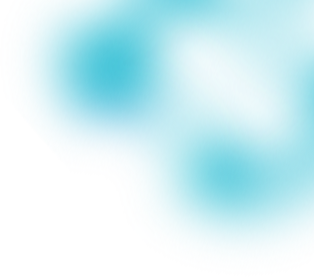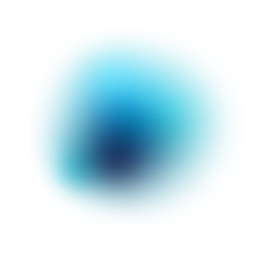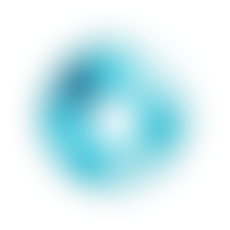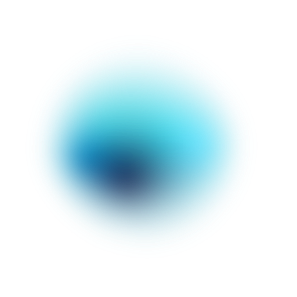






Minderoo-UWA Deep-Sea Research Centre
Exploring and
mapping the deepest areas of the Indian Ocean and beyond
A partnership between


The University of Western Australia and Minderoo Foundation have joined forces to establish a world leading deep-ocean research centre, to increase understanding about the deepest parts of the ocean.
The Minderoo-UWA Deep-Sea Research Centre has been supported with a major five-year grant from Minderoo Foundation’s Flourishing Oceans initiative, as part of its commitment to increasing knowledge of the deep sea and to return the oceans to a healthy, thriving state.


Our knowledge of the world’s oceans is strong along coastal areas, but we live in surprising ignorance of the deep ocean – the largest habitat for life on earth.
This partnership is a joint commitment to increase our understanding of the deep ocean by discovering new species, assessing marine biodiversity, mapping the ocean floor, and charting deep-sea habitats. The centre specialises in abyssal (3,000-6,000 m) and hadal (6,000-11,000 m) depths that represent the deepest 70% of the oceans, the most extreme marine frontiers.


Our deep-sea research is already surfacing important discoveries.
The first expedition, to the Wallaby-Zenith Fracture Zone, was on board the DSSV Pressure Drop, a customised research ship that carries a full ocean depth rated submersible DSV Limiting Factor. This expedition was the first comprehensive survey of these deep east Indian Ocean features.
People
The Deep-Sea Research Centre is a unique multidisciplinary combination of expertise spanning biology, ecology, taxonomy, genetics, geology and subsea technology. This sea-going team will work closely and across disciplines to produce new insight into the deepest parts of our oceans and the life it contains.
Exploration
Accessing anywhere the deep ocean is paramount to the Deep-Sea Research Centre’s vision. Over the course of five years, the research team will undertake many oceanic expeditions to the Indian ocean and beyond. These voyages of discovery will see this highly experienced team embark on local and international research vessels to explore, sample and experience a multitude of deep-sea habitats for the first time.
Technology
Deep-sea research is often underpinned by new technologies. The centre will utilise their own bespoke full ocean depth rated imaging landers and other state-of-the-art exploration vehicles to access the most remote parts of our oceans. The unique technologies provide the team access to anywhere in the worlds oceans and bring back images and samples.
Facilities
The recently constructed multifunctional centre is supported by state-of-the-art facilities. The laboratory will be the place where deep-sea instruments are prepared for deployment, data are analysed, and samples processed. The lab utilises extensive resources, including on-site engineering and oceanographic support and two busy marine molecular biology laboratories hosted in the Indian Ocean Marine Research Centre.
Seabed mapping
Mapping the deep-seafloor and its many geomorphological structures is a key component in the centre’s research vision as well as contributing to national and international mapping initiatives. The research centre aims to increase the seafloor mapping of abyssal and hadal depths, particularly in the Indian Ocean. Bathymetric collected will be shared nationally and internationally.

Alan Jamieson
Founding Director
Professor Alan Jamieson is a biologist, engineer, adventurer, explorer, author and the founding Director of the Minderoo-UWA Deep-Sea Research Centre. He has worked in the deep-sea for over 20 years, and has had a significant impact on the field in this time. He has published over 140 peer reviewed scientific papers and book chapters and is the author of the monograph 'The Hadal Zone: Life in the Deepest Oceans'.
Professor Jamieson has participated in over 70 deep-sea expeditions on over 26 research vessels spanning every ocean. His work has also featured in the BBC’s Blue Planet II, and NHK’s Deep Ocean, Descent into the Mariana Trench documentaries.
In 2024 he became an officer of the Order of the British Empire (OBE) for services to marine biology and exploration.

Todd Bond
Deputy Director- Ecology
Dr Todd Bond is a marine ecologist with over 10 years of experience in academic research and teaching that has centred on fish and shark ecology. His current research focuses on hadal and abyssal ecology where he utilises his extensive experience with underwater video technology and sampling methods.
Todd is also considered a global expert in the ecology of fishes surrounding artificial structures including oil and gas installations and his work informs sensible approaches to decommissioning structures that have reached end-of-life.
An avid science communicator and a WA Science Ambassador, Todd's research is awarded at international conferences and saw him receive a Premier’s Science Award in 2020.

Heather Stewart
Deputy Director - Geoscience
Heather Stewart is an A/Professor at Kelpie Geoscience, adjunct to the Minderoo-UWA Deep-Sea Research Centre. She has over 20 years of experience in multidisciplinary marine research and exploration with a focus on characterising the geology and physical character of the seabed and sub-seabed. She has participated in more than 35 marine expeditions globally and more than 10 remote land-based fieldwork expeditions.
Heather has published more than 100 peer-reviewed scientific papers and commercial reports, and is an experienced scientific and public presenter. She has completed a number of crewed submersible dives.

Paige Maroni
Postdoctoral Research Fellow
Dr Paige Maroni is a marine scientist at the University of Western Australia and the geneticist within the Deep-Sea Centre. Paige has a deep appreciation and interest in marine invertebrates and rich experience in taxonomic field studies.
Additionally, Dr Maroni has been awarded the UWA Oceans Institute Robson and Robertson award, a UWA Convocation award, and an Antarctic Science Foundation award.

Prema Arasu
Postdoctoral Research Fellow
Dr Prema Arasu is a writer and poet interested in the phenomenology of the deep sea. They have an MLitt in Modern and Contemporary Literature and Culture, and have recently submitted a PhD in Creative Writing at UWA.
Dr Arasu is interested in how speculative fiction and experimental forms might provide us with new ways of talking about and conceptualising the oceans, particularly in the context of the Anthropocene. Their approach is interdisciplinary; integrating the methodologies of literary studies, creative arts, environmental humanities, philosophy, and science communication.

Yakup Niyazi
Postdoctoral Research Fellow
Dr Yakup Niyazi is a Marine Geoscientist at the Deep-Sea Research Centre. His research involves mapping the deep seafloor using acoustic imaging techniques and using his expertise in geomorphology, geology and geophysics to understand the regional and global context of the deep-sea geomorphology.
Dr Niyazi's main research interests includes submarine geomorphology, seismic stratigraphy and geomorphology of submarine canyon/channels, mass-transport complexes, fluid flow, and igneous plumbing systems in the ocean sphere.

Jess Kolbusz
Postdoctoral Research Fellow
Dr Jess Kolbusz is a physical oceanographer at the University of Western Australia and the Oceanographer within the Deep-Sea Research Centre. She is a transdisciplinary researcher with an undergraduate degree in Environmental Engineering and a PhD from UWA on the role of oceanographic processes on the settlement of the Western rock lobster.
Dr Kolbusz's current research focuses on the physical and biological characteristics of the full-depth profile and how these conditions may link to the ecology of the deep sea.

Elisabeth (Lizzy) Myers
Postdoctoral Research Fellow
Dr Lizzy Myers is a marine ecologist at The University of Western Australia who focuses on fish biodiversity and functional ecology across large-scale spatial gradients such as depth and latitude. Dr Myers earned her BSc Honours degree in Marine Science from The University of Western Australia and has a PhD in Statistics from Massey University in New Zealand.
Lizzy is currently focused on characterising the biodiversity and ecology of fishes that live in mesophotic (30-150m) and rariphotic (130-300m) zones at several locations globally, including in the Caribbean Sea and the South Pacific Ocean.

Brett Gonzalez
Postdoctoral Research Fellow
Dr Brett Gonzalez is an Invertebrate Zoologist and an expert in scale worms (Aphroditiformia; Annelida). His research interests strive to enhance our knowledge of rare and unique taxa inhabiting environments poorly understood and often overlooked, including the deep-sea, subterranean, pelagic zone, and the interstitium.
Dr Gonzalez’s research will investigate processes that generate and maintain biodiversity in the marine realm – focusing on evolutionary processes driving diversity and adaptation, shaping life history strategies, and impacting biogeographic distributions.

Georgia Nester
Postdoctoral Research Fellow
Dr Georgia Nester is a molecular ecologist whose research employs environmental DNA (eDNA) to characterise biodiversity and monitor threatened species in challenging marine environments. Within the Deep-Sea Research Centre, she is focused on expanding the scope of captured biodiversity and integrating it with biophysical data to generate a better understanding of deep-sea ecosystems.
Driven by her passion for conservation, she is committed to utilising her expertise to contribute to the safeguarding of deep-sea environments.

Javier Montenegro
Postdoctoral Research Fellow
Dr Javier Montenegro is a biologist with a profound interest in molecular ecology and evolutionary research in marine environments. His expertise spans across a variety of model systems in lacustrine to deep-sea ecosystems, reflecting a comprehensive understanding of biological processes in aquatic environments.
Dr Montenegro's focus while at the Centre is will be on the taxonomy, molecular ecology, and evolutionary biology of organisms inhabiting trenches and hadal ecosystems. By investigating these ecosystems, he aims to unravel the forces driving the diversification and perpetuation of species in these extreme environments.

Denise Swanborn
Postdoctoral Research Fellow
Dr Denise Swanborn is a marine scientist whose research primarily focuses on the relationship between seabed structure and the occurrence and distribution of deep-sea habitats and biodiversity. Her work spans various spatial scales and combines techniques and conceptual frameworks from seascape ecology, seabed and habitat mapping and marine geomorphology.
At the Deep-Sea Research Centre, her research will employ seafloor mapping datasets and in-situ biological observations from submersible and lander video data to obtain a better understanding of the environmental factors that shape benthic ecology at abyssal and hadal depths.

Devin Harrison
Postdoctoral Research Fellow
Dr Devin Harrison is a Marine Geoscientist at Kelpie Geoscience, adjunct to the Minderoo-UWA Deep-Sea Research Centre. His research utilizes high-resolution topographic models of the seafloor and complimentary geophysical and geospatial datasets to understand the geomorphic evolution and process landform relationship of the deep sea and the continental shelves.
Devin’s research interests include the geomorphology of the deep sea, landform and landscape evolution, submarine landslides, glacial geomorphology and sedimentology.

Elin Thomas
Researcher
Dr Elin Thomas is a marine biologist and conservationist working at the Deep-Sea Research Centre. Dr Thomas earned her PhD from Queen’s University Belfast, where her research focussed on the conservation of deep-sea benthic invertebrates.
Elin’s work involves addressing the need for improved fundamental knowledge about the systematics, distribution and relationships of understudied deep-sea species, and exploring how deep-sea conservation may be achieved with the limited data already available. This includes applying scientific criteria and tools from international organisations such as the IUCN to better understand the conservation needs of deep-sea environments.

Hayley Sims
Senior Research Officer
Hayley is the Deep-Sea Research Centre’s Lab Manager. Hayley has a BCom, Post-Grad Dip MSc and a Masters with Distinction in Marine Biology from The University of Western Australia. Her master's research used BRUVs to define demersal fish archetypes in response to bathymetric derivatives in the South-west Corner Commonwealth Marine Park.
Hayley has a background in business management, marketing and communications and she has joined us from the Western Australian Marine Science Institution.
Her role will be supporting the management and operations of the centre and facilitating science at sea. Her interests are in deep-sea biology and science communications.

Megan Cundy
Research Officer
Megan is a marine ecologist working in the Deep-Sea Research Centre as a Research Officer. She will collect field data and perform video-based data analysis from deep-sea submersible and lander-based systems to collect species diversity, abundance, behaviour, and other biotic and abiotic information.
Megan has diverse experience in marine science fields including fisheries, shark ecology in the Galápagos Islands, marine spatial planning for marine protected areas, and turtle population monitoring in Costa Rica.

Melanie Stott
Research Officer
Melanie Stott is a marine ecologist, working at the Deep-Sea Research Centre as a Research Officer. Her work will focus on assessing the diversity and abundance of marine taxa in the hadal zone utilising video imagery analysis to better understand the faunal assemblages of the deep sea.

Dylan White-Kiely
Research Assistant
Dylan is a marine scientist working as a research assistant in the Deep-Sea Research Centre. His role includes retrieving and deploying deep-sea observatories and landers, video analysis, equipment preparation for fieldwork, and laboratory preparation of collected samples. Dylan has experience in an array of marine science fields, including marine toxicology, underwater acoustics analysis, BRUVs, and marine turtle tagging, health assessments, and population monitoring.

Jenny Wainwright
PhD Student
Jenny is a PhD candidate at the University of Western Australia within the Deep-Sea Centre with a keen interest in taxonomy, ecology, applied marine biology, and biotechnology. Jenny will be describing a new species of deep-sea amphipod and exploring the adaptations and applications of the exoskeleton and gut microbiome.

Alfredo Marchio
PhD Candidate
Alfredo is a PhD candidate at the University of Western Australia. His research topics include taxonomy, ecology, and zoology of deep-sea benthic species, mainly corals and sponges. Alfredo will analyze video material and samples from multiple scientific cruises around the Pacific Ocean.
Explore with us
Looking to join our next underwater expedition? Over the coming years, there will be opportunities and scholarships for PhD students as well as positions for professional and academic staff.
The Deep-Sea Research Centre is multidisciplinary and welcomes new research collaborations. Join the Oceans Institute community to stay up to date with opportunities like this and more.
Reach out to us at [email protected]
